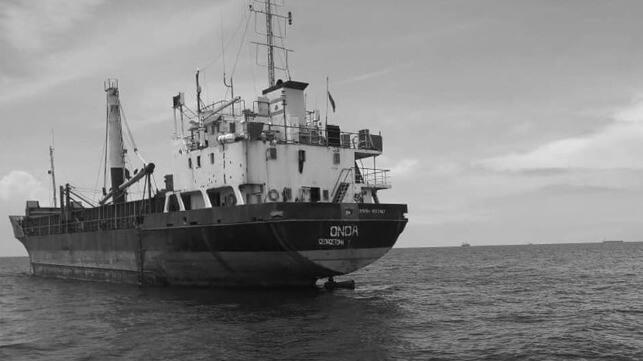Op-Ed: In 2023, We Should Enforce the Law on Human Rights at Sea
The simple headline is that human rights protections at sea are still overlooked, deliberately avoided, and conveniently brushed aside.

2023 is shaping to be another challenging year for human rights defenders. These are dangerous geopolitical times for maintaining and assuring hard-earned fundamental human rights on land and at sea.
The established global emphasis on upholding fundamental, individual human rights can no longer be taken for granted. The rise in nationalism, expanded regional and State divisions, expansionism, environmental catastrophes and increasing fragmentation of the 20th-Century approach to the rule of law - all provide a dangerous mix of economic, physical, and moral fractures in our societies. What we refer to as more traditional human rights protections are under sustained attack, and more so than ever before.
At sea, human rights abuses can be seen in ongoing maritime slavery, human trafficking, loss of life among migrants and refugees, IUU fishing, consistent loss of coastal communities’ livelihoods, detention of seafarers, record levels of seafarer abandonment and sinking of merchant vessels during international armed conflict. Add in increasing child labor and forced labor conditions for workers – all being perpetuated at sea on a daily basis.
Despite the advantages of globalization, this erosion of fundamental human rights is mirrored in the East-West divisions in ideology, the rise of hegemony, the decline in the effective application of democratic values, and the regular absence of effective justice for victims and their families.
A year of challenges
Looking back, 2022 was undoubtedly a difficult year for the defense of human rights. The number of examples of egregious abuses across a multitude of States cannot be fully covered here but may be found all too easily in the news.
Along with East-West divides, the ongoing inequalities between the developed Global North and the developing Global South continue to highlight localities in which the often-high levels of human rights abuses at sea occur. We need to address this issue much better at the UN level, especially in the maritime space.
Positively, the narrative around "human rights at sea" is gaining international traction. The concepts of a "blue turn," a "blue economy" and a growing "maritime human rights ecosystem" are circulating among political and policy stakeholders.
Ironically, the COVID-19 pandemic gave public exposure to the risks, challenges and often poor conditions of those working at sea, often in excess of lawful periods of contracted employment. In 2020, the UN Secretary General highlighted the humanitarian crew change crisis for seafarers, thereby putting human rights at sea on the map.
While there are known gaps in human rights protections in law and policy, the real factor in achieving positive change is the sustained and effective enforcement of existing legal instruments in order to deter abusers. We need to better implement the regulations we have while concurrently developing soft-law, policy and legislative initiatives that have real "bite."
Ways Forward
As hard as it is for civil society to accept, we have to acknowledge the realities of a less-than-perfect enforcement environment and consider better use of economic and consumer solutions to create change.
This may include insurers charging more for vessels flagged in poorly ranked flag States; consumers demanding greater transparency and public reporting of human rights protections from third-party audit and certification standards; and sustained awareness campaigns calling out the plethora of issues, however unpalatable they may be.
The cause of human rights abuses at sea is the same as on land. And although States (flag, coastal and port) may not always protect people, the abusers must still be held accountable. That means more litigation, greater levels of naming and shaming based on corroborated evidence, and transparency for all alleged initiatives linked to maritime human rights protections.
We should therefore identify champion States and influential entities and harness their political energy and resources. With enough people and engaged States, we can achieve greater levels of justice.

that matters most
Get the latest maritime news delivered to your inbox daily.
If COP 15 can seek to protect 30 perent of global land and maritime environments and associated biodiversity by 2030, then we should be able to at least attempt to reduce global human rights abuse by 30 percent. In 2023 and beyond, Human Rights at Sea will work hard alongside our valued partners to act as a global catalyst for positive policy and legislative change throughout the maritime environment.
A former military seafarer, veteran Royal Marines Officer and Barrister (Counsel), David Hammond has practical maritime and legal operational experience, having served in the North and South Atlantic Oceans, the Mediterranean, the Indian Ocean, Arabian Gulf and South China Seas. As CEO of the UK-based NGO Human Rights at Sea, he is an advocate for the ongoing international development, advocacy and drive for the explicit codification of the concept of ‘human rights at sea’ throughout the maritime environment.
The opinions expressed herein are the author's and not necessarily those of The Maritime Executive.
